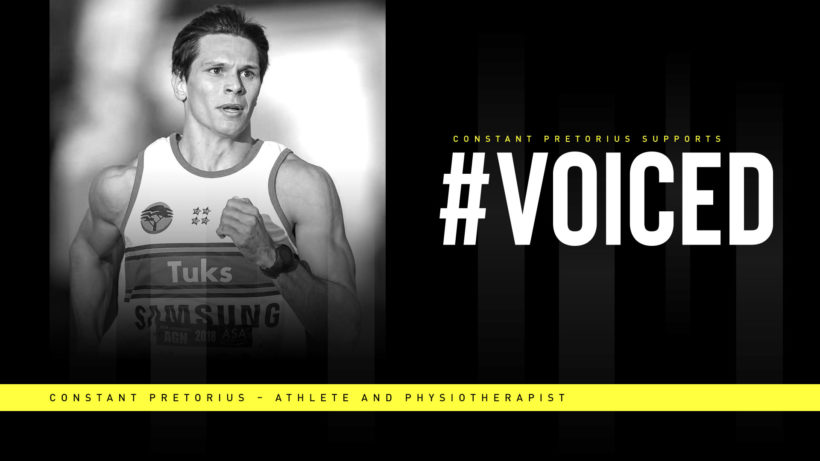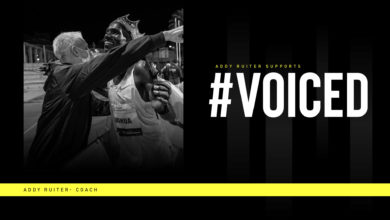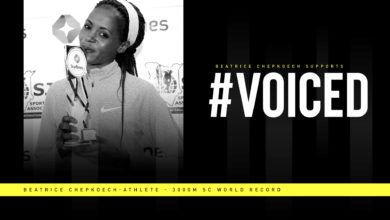Country: South Africa
Profession: 400mH Athlete and Physiotherapist
Career highlights:
- 2017 Universaide finalist
- 2013 African U20 Championships – gold medallist
- 2011 and 2013 South African Junior champion
- 2011 IAAF World Youth Championships – 5th
- 2011 Youth Commonwealth Games – silver medallist
- Ranked 7th in the world as a junior
So many athletes choose not to study when they turn professional, what made you decide to pursue a career as a physiotherapist?
I wanted to be a physiotherapist since I was 13. I spent a lot of time with physios as a child because of lung problems and later on, because of injuries from rugby. I only started considering athletics as a career when I was 17 years old, but still had a massive passion to be a physiotherapist. I also knew that I wouldn’t be able to be a professional athlete for the rest of my life – and as a physiotherapist I will always get to be around the sport, helping other people reach their goals.
How do you balance the demand of your work as physio and athletics career?
I am very fortunate to work for a practice where my current physio is one of the principles. I have been a patient with her for the last 10 years and she knows that I dream of representing South Africa at the Olympics and World championships one day. So, we worked out a great schedule where I get to train in the mornings and only start work later in the day and go into the night. This allows me to help a lot of people who can only be seen after hours and helps me to be fresh and ready when I need to train and give it my all in the mornings.
Looking at some of the injuries we saw at Tokyo, what do you think athletes need to do better/differently to try prevent getting injured?
The human body is very complex, it is always easy to speculate on what we can do to prevent injuries, but it is not that straight forward. When it comes to athletes, we like to push our bodies as far as it allows us and sometimes it means pushing it that inch too far. The body does however have a warning system most of the time before an injury occurs. I believe that athletes need to learn how to listen to their bodies more, especially in the pre-season where we tend to believe we need to do more. Sometimes this creates problems later on in the season when it is too late to change and then we try and just patch here and there to get through the season. Starting off the pre-season healthy, listening to your body and making sure you have adequate recovery and nutrition can go a long way to prevent injuries.
For you, what is the role of a physiotherapist as part of an athlete’s team around them?
I believe physiotherapists play a massive role in all high performance sport where the margins of victory can be so small. Being able to see a physio when you feel a slight niggle or just going for a check-up to make sure your body is performing optimally can give you as an athlete so much confidence to push to your absolute limits during competition. Regular Physio check-ups can also help prevent injuries, as the there are certain warning signs that the body gives that you as an athlete don’t always understand, but the physio can pick up on. Through education, the physio can also help you understand your body better, so that you know when you cannot tolerate the load of a training program, or when you might need more recovery. A Physiotherapist can also help with screening processes to help determine where you lack mobility or strength that can be addressed in preseason with the coach to optimize the performance for next season.
As a 400m hurdler, what have you found to be the most challenging part of this event?
The biggest challenge for me in the 400mH is that the race only starts in the last 100m. The set up in the first 300m is important, but it is often the last 100m where the fight starts, not only against the opponents, but also fighting your body and the monkey that jumps on your back to get to the finish line! You need to have good technique over the hurdles to spend as little energy as possible, especially when you go over the last two hurdles where the slightest misjudgement can be the difference between a gold medal and falling flat on your face. So to me the most difficult part of 400mH is definitely making sure you have good technique and judgment over the final 2 hurdles while your body is filled with lactic and your mind craves oxygen.
What is your biggest fear?
My biggest fear is that I disappoint those people in my life who have given me so many opportunities to get where I am now. There have been so many people in my life, be it coaches, physiotherapist, employers and most importantly my parents who gave me opportunities to do what I love, be it athletics or physiotherapy. My biggest fear is that I disappoint them with my performance on the track or at work. I have a lot of intrinsic drivers to be the best athlete I can possibly be, but this fear also adds to my drive to work harder on the track and to become a better physiotherapist.
Where do you like to rest and relax?
I like to relax by taking my dog to the park once a week. I love dogs and there is a something about seeing dogs play in the park on a sunny day that just relaxes my heart and soul. I also like going camping in the bush to rest and recover, especially when it feels like life is getting too crazy.
What athlete would you like to have round for dinner and why?
I would love to have dinner with Asafa Powell. He was one of the biggest reasons I started watching athletics when I was younger. His constant drive and the ability to run sub 10 seconds just fascinates me. To be that consistent over so many years is just incredible. He also looks like one of the nicest and most humble guys in athletics.


